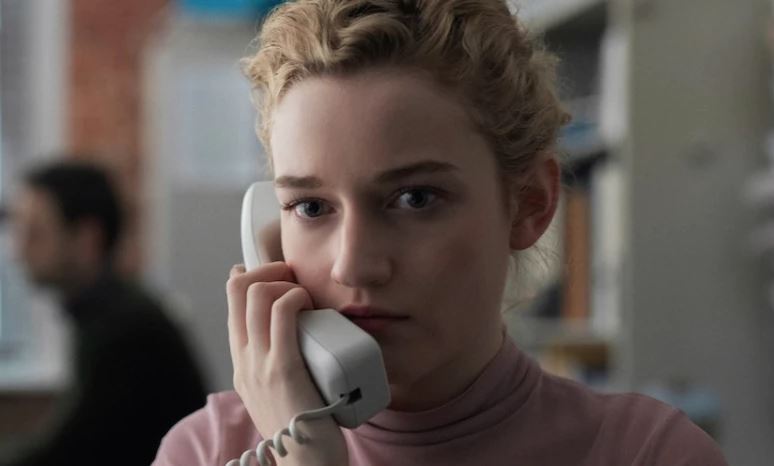The Royal Hotel: Do You Come from a Small-Town Blunder

Finalizing the paperwork, the interviewer asks a throwaway, borderline-rhetorical question: “Are you OK with receiving a little male attention?” The two young women sitting across from her exchange a smirk. “I think we can handle that,” one of them responds with a twinkle in her eye. The forms are stamped, the directions are provided, and without ceremony our heroines accept their offer of temporary employment—a comfy gig that gradually turns into a fraught, transformative odyssey.
This is the innocuous, loaded opening of Kitty Green’s The Royal Hotel, and while the movie’s gradual shift from road-trip hangout to claustrophobic reckoning is dramatic, it doesn’t necessarily come as a surprise—not if you’ve seen Green’s first feature, The Assistant. That film transpired over a single dreary day in the Manhattan office of a Hollywood studio, where an ambitious gofer busied about her dull and dispiriting work in an atmosphere thick with complicity and abuse. Aside from a single tête-à-tête with an HR manager, nothing really happened in The Assistant, but Green nonetheless turned her protagonist’s sober, shameful routine into a trenchant commentary on feminine helplessness and male power. Comparatively speaking, The Royal Hotel represents a significant logistical expansion; it spans two weeks rather than 24 hours, it visits multiple locations, and it features a number of incidents which, when tied together, resemble something akin to a plot. But the two pictures share a fully formed sensibility—a yin-yang anxiety of impotence and rage. Read More

